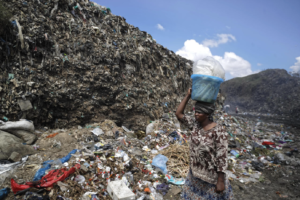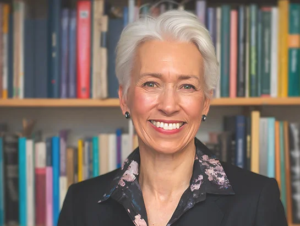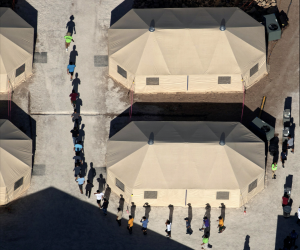The landscape of global justice is changing with warp speed. And several key factors in Ukraine have fueled this shift.
By Diane Orentlicher, deputy for War Crimes Issues in the State Department from 2009 to 2011
It seems all but inevitable that Russian President Vladimir Putin will be indicted by the International Criminal Court, and likely by other courts, too.
But if I had said that a few months ago, I would have been roundly dismissed as an out-of-touch academic — and rightly so.
Recent decades have seen a decided shift toward accountability, even for leaders who long seemed untouchable.
To be sure, recent decades have seen a decided shift toward accountability, even for leaders who long seemed untouchable. But in practice, international tribunals have prosecuted leaders of states defeated in war (see: Nuremberg, Tokyo) or of “small power” states, like Liberia and Ivory Coast.
Now, however, an unusually large group of states is actively assisting investigations into atrocities in Ukraine, which many expect will eventually lead the ICC to indict Putin. The intensity of these investigations is greater than anything I have seen in nearly three decades of work in the field of international justice.
The landscape of global justice is changing with warp speed. And a convergence of several key factors in Ukraine has fueled this shift.
First is the brazen nature of Russia’s invasion. Russia’s attack against a country whose only offense was its embrace of democracy and desire to join the North Atlantic Treaty Organization is deemed “so outrageous” it has galvanized global resolve. True, this isn’t the first time in recent memory a sovereign state has been invaded (see: Iraq in 2003). But by appearing to so flagrantly flout international law, Putin has boosted to new heights global efforts to enforce it.
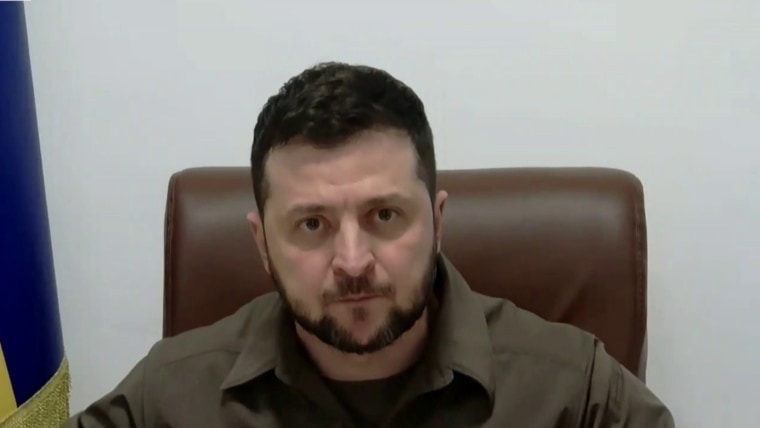
Zelenskyy calls for tribunal to prosecute Russian war crimes
Second, Russian forces have unleashed a litany of atrocities allegedly against thousands of innocent civilians, including, reportedly, hundreds of children. In response, Western leaders such as French President Emmanuel Macron insist “Russian authorities will have to answer for these crimes.”
Third, and of crucial importance, Ukrainian President Volodymyr Zelenskyy has demanded that those responsible for grievous war crimes “be held accountable” and has facilitated real-time investigations into Russian atrocities.
His views carry phenomenal weight. At a time when inspiring leaders are in painfully short supply, Zelenskyy’s leadership has elicited wide and deep admiration — enhanced, no doubt, by fresh memories of Afghan President Ashraf Ghani abandoning his country before it fell to the Taliban. Small wonder world leaders have taken turns traveling to a war zone to show solidarity — and be photographed — with Ukraine’s president.
Fourth, the media-savvy Zelenskyy has welcomed foreign correspondents, who have reported out atrocities as soon as they occur. How different from the situation in, for example, Myanmar. Though its citizens have suffered under a brutal junta since February 2021, its depredations now garner scant attention, in part because the junta banned independent media.
Also critical, efforts to bring Putin to justice are integral to a powerful policy commitment by President Joe Biden and other leaders, backed by meaningful action and tireless diplomacy, to counter Russian aggression.
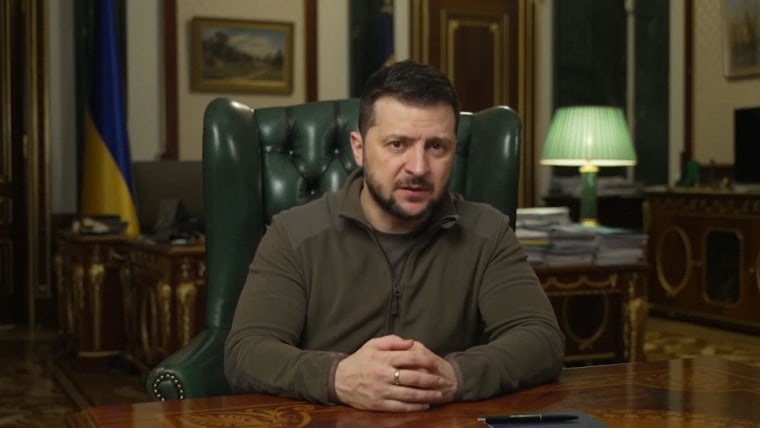
Zelenskyy on possibility of chemical weapons being used in Mariupol: ‘We take it very seriously’
And yes, Western leaders might well be more readily moved to act in the face of suffering of citizens who look like them. The flip side, however, and what makes recent developments so striking, is that Western leaders might also be more tolerant of ICC indictments of leaders who don’t look like them, lead powerful countries or enjoy major powers’ protection — or so many critics believe.
Consider the record of contemporary tribunals. Though the ICC is now investigating atrocities in the Philippines, Venezuela and several other countries outside Africa, it has so far only indicted leaders or former leaders from African countries. African leaders have also been prosecuted before a U.N. tribunal set up in response to the genocide in Rwanda (former Rwandan Prime Minister Jean Kambanda pleaded guilty to genocide in 1998) and another international court that addressed atrocities in Sierra Leone (former Liberian President Charles Taylor was convicted for sponsoring atrocities in 2012).
In Europe, a U.N. tribunal created to address atrocities accompanying the breakup of Yugoslavia eventually targeted leaders. In 1999, it indicted Serbia’s wartime leader, Slobodan Milošević. Though he died before judgment, Milošević spent his final years in the dock. This was a milestone — but Milošević wasn’t Putin.
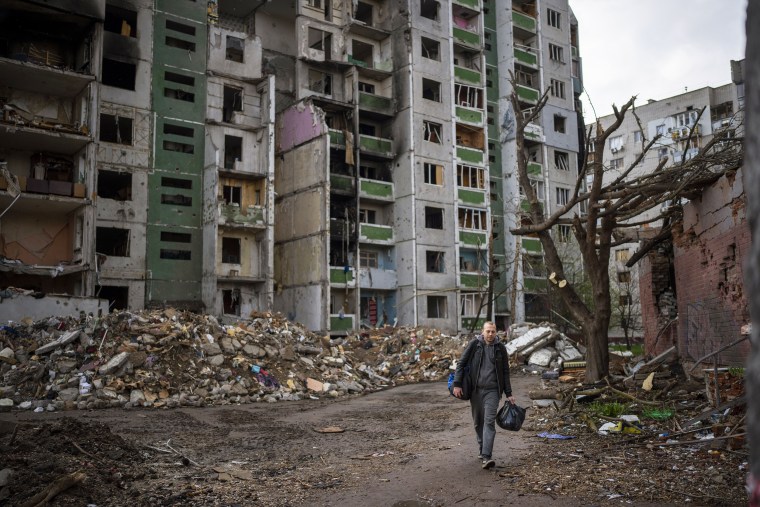
All these prosecutions were amply justified. And they were a welcome departure from earlier times, when former dictators could expect a quiet retirement, proverbially in the south of France. Even so, an ICC indictment against Putin would mark a departure from what have long seemed to be the unwritten rules of global justice.
To be clear, what critics have decried as a “big power” exemption from the ICC’s remit is partly explained by basic rules of international law. Unless the U.N. Security Council calls for an investigation by the ICC (this is where veto-wielding countries like Russia can bend justice to their interests), its prosecutor can only take up atrocities if they are committed in or by citizens of countries that have accepted its jurisdiction. For the court’s reach is defined by its founding treaty, which countries are free to accept or not. The United States, Russia and China — nations at the top of today’s “big power” shortlist — have no intention to do so.
All these prosecutions were amply justified. And they were a welcome departure from earlier times.
Why, then, is it now reasonable to suppose the ICC prosecutor will eventually indict Putin? If revulsion at Putin’s conduct, matched by admiration for Zelenskyy, explain today’s political momentum for accountability, the court’s legal license comes from two sources.
First, in 2015 Ukraine filed a declaration accepting ICC jurisdiction. This made it possible for the prosecutor to investigate atrocities committed in Ukraine since Feb. 20, 2014, when Russia first moved to annex the Crimean Peninsula and backed separatists in the Donbas region. But this hardly propelled timely action. It took more than five years for the court’s then-prosecutor to conclude a full-fledged investigation was warranted.
In notable contrast, just days after Russia invaded Ukraine in February, the court’s current prosecutor, Karim Khan, announced he wanted to open an investigation. This prompted the second key action: An unprecedented 41 countries swiftly “referred” Ukraine to the court, which freed Khan from having to seek judges’ permission.
Meanwhile, political figures and legal experts are now proposing to stand up a new international or regional tribunal that could prosecute the crime of aggression — which the ICC cannot investigate without Russia’s consent. Barely three weeks after Russian tanks rolled into Ukraine, legal experts drafted a model indictment “against President Vladimir Putin for the crime of initiating and executing a war of aggression against Ukraine.”https://iframe.nbcnews.com/4HWxg3h?_showcaption=true&app=1
Another notable realignment may be underway, too: The United States, which has steadfastly opposed ICC jurisdiction over nationals of countries that have not joined the court without a U.N. Security Council referral, is actively debating whether to relax its stance.
The Biden administration has already gone a long way toward doing so, suggesting the ICC’s involvement in Ukraine could be “appropriate.” Remarkably, too, the Senate unanimously approved a resolution, introduced by Sen. Lindsey Graham, R-S.C., supporting the ICC’s investigation in Ukraine. In a never-thought-I’d-see-that-happen moment, Graham told The New York Times that Putin had singlehandedly “rehabilitate[d] the I.C.C. in the eyes of the Republican Party and the American People.”
Of course, ultimately, it is one thing to indict a head of state and quite another to bring him to book in a global court. The ICC’s record sounds a cautionary note. Though former Sudanese leader Omar al-Bashir, indicted in 2009, is out of power and detained in Sudan, he has yet to be transferred to the ICC in The Hague. Muammar Gaddafi, whom the court indicted in June 2011, was killedin Libya before the court could gain custody. A few years later, then-Prosecutor Fatou Bensouda was forced to withdraw charges against Kenyan President Uhuru Kenyatta, saying witness intimidation doomed her case.
It is one thing to indict a head of state and quite another to bring him to book in a global court.
Even so, it would be a mistake to rule out a successful prosecution of Putin. For one thing, key governments look to be unusually willing to furnish evidence, potentially including intelligence intercepts, of Putin’s criminal responsibility.
International justice has also repeatedly defied skeptics. True, it has often taken far too long. But this should not be confused with justice denied.
Just last year, the ICC finally convicted Dominic Ongwen, a Ugandan senior commander of the notoriously brutal Lord’s Resistance Army, who was first indicted in 2005 but eluded capture for a decade. His case is hardly unique.
Cambodians had to wait far longer to achieve a measure of justice for Pol Pot’s deadly reign. Yet, more than 30 years after the Khmer Rouge was ousted, three surviving figures were convicted of international crimes before the Extraordinary Chambers in the Courts of Cambodia.https://iframe.nbcnews.com/VZIR82d?_showcaption=true&app=1
This is not to say it’s only a matter of time before Putin is brought to justice. Among the formidable challenges ahead is a relentless tendency for diplomats and their bosses to move on to the next crisis. As intense as global resolve to hold Putin accountable now appears, we cannot assume it will last.
Yet, Putin has so utterly shattered tolerable limits of forbearance, it’s not fanciful to suppose a fundamental change is underway. Besides, as champions of justice remind us, his indictment itself would provide no small reckoning. Indeed, it would be a game changer.


